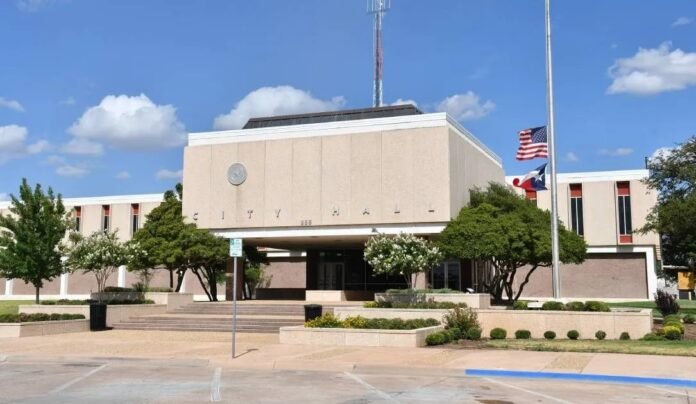Cyberattack Shuts Down Systems in Abilene, Texas: A Growing Concern for Local Governments
In a troubling development for the residents of Abilene, Texas, the city government has been forced to shut down several of its internal systems following a cyberattack. This incident, which came to light on a Friday, has raised alarms not only within the city but also across the state, as Texas grapples with an increasing number of cyber threats targeting local governments.
The Incident Unfolds
City officials reported that they became aware of the cyberattack when IT staff noticed unresponsive servers within the city’s internal network. In a swift response, the IT team disconnected the affected systems to prevent further damage. To ensure a thorough investigation, cybersecurity experts have been brought in to assess the situation and identify the nature of the attack.
In a statement released on Monday, the city reassured residents that emergency services remain operational and that no unauthorized financial activities have been detected. “Out of an abundance of caution, certain systems have been taken offline,” the statement read, emphasizing the city’s commitment to maintaining essential services during this crisis.
Impact on Daily Operations
The cyberattack has had immediate repercussions for the city’s operations. With several systems offline, government offices are unable to process card payments, forcing residents to rely on cash or checks for transactions. However, the city has pledged not to shut off utilities due to overdue accounts, and residents can still make online payments using cards.
As the IT team works diligently to restore services, the city has warned that residents may experience slower response times to service requests. “While systems and telephones are being brought back online, you may experience a slower than normal response to service requests,” the city stated, urging patience as they navigate this challenging situation.
Monitoring and Recovery Efforts
The city’s IT team is actively monitoring systems for any unusual activity while working to restore normal operations. Officials have provided contact numbers for residents facing water-related emergencies or other urgent incidents, acknowledging that recovery from such cyber incidents is a “time-intensive process.” As investigations continue, more information about the scope of the attack is expected to emerge in the coming weeks.
Interestingly, city officials have refrained from commenting on whether the attack is related to ransomware or if federal authorities have been notified, leaving residents and observers with lingering questions about the nature of the threat.
A Broader Context of Cyber Threats in Texas
Abilene is not alone in facing cyber threats; the city is part of a troubling trend across Texas. With over 130,000 residents, Abilene is situated about three hours west of Dallas and Fort Worth, both of which have recently experienced their own service-impacting cyberattacks. In 2023, the city of Dallas suffered a significant ransomware attack, prompting a wave of similar incidents affecting various government bodies throughout the state, including Dallas County, Tarrant County, and Wichita County.
This year alone, Matagorda County and the city of Mission declared states of emergency due to cyberattacks that severely impacted critical services. The frequency and severity of these incidents have prompted state officials to take action.
Statewide Response: The Texas Cyber Command
In response to the escalating threat of cyberattacks, Texas Governor Greg Abbott announced the establishment of the Texas Cyber Command in February 2023. Based in San Antonio, this initiative aims to enhance the state’s ability to anticipate and detect potential cyber threats, promote cyber awareness, and coordinate responses to attacks.
During the announcement, Abbott highlighted the urgency of addressing the growing cyber threat landscape, stating, “In just the past week or so, a cyberattack has hit a city, has hit a hospital, has hit a prominent business, and this happens week after week, and it’s increasing.” His call for the creation of the Texas Cyber Command underscores the need for a proactive approach to cybersecurity in the state.
Conclusion
The cyberattack on Abilene serves as a stark reminder of the vulnerabilities faced by local governments in an increasingly digital world. As the city works to recover and restore its systems, the incident highlights the importance of robust cybersecurity measures and the need for ongoing vigilance against cyber threats. With the establishment of the Texas Cyber Command, there is hope that the state can better protect its communities from future attacks, ensuring that essential services remain secure and operational. As investigations continue, residents and officials alike will be watching closely for updates on the situation and the broader implications for cybersecurity in Texas.


